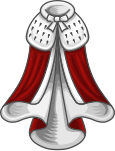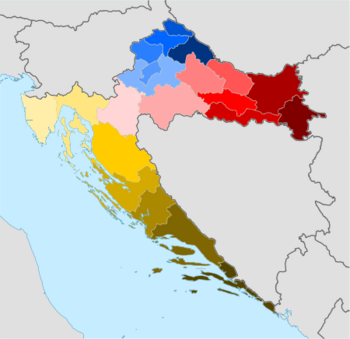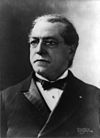Portal:Politics
| Main | Topics and categories | Tasks and projects |
The Politics portal
Politics (from Ancient Greek πολιτικά (politiká) 'affairs of the cities') is the set of activities that are associated with making decisions in groups, or other forms of power relations among individuals, such as the distribution of status or resources. The branch of social science that studies politics and government is referred to as political science.
Politics may be used positively in the context of a "political solution" which is compromising and non-violent, or descriptively as "the art or science of government", but the word often also carries a negative connotation. The concept has been defined in various ways, and different approaches have fundamentally differing views on whether it should be used extensively or in a limited way, empirically or normatively, and on whether conflict or co-operation is more essential to it.
A variety of methods are deployed in politics, which include promoting one's own political views among people, negotiation with other political subjects, making laws, and exercising internal and external force, including warfare against adversaries. Politics is exercised on a wide range of social levels, from clans and tribes of traditional societies, through modern local governments, companies and institutions up to sovereign states, to the international level.
In modern nation states, people often form political parties to represent their ideas. Members of a party often agree to take the same position on many issues and agree to support the same changes to law and the same leaders. An election is usually a competition between different parties.
A political system is a framework which defines acceptable political methods within a society. The history of political thought can be traced back to early antiquity, with seminal works such as Plato's Republic, Aristotle's Politics, Confucius's political manuscripts and Chanakya's Arthashastra. (Full article...)
Selected article
The privilege of peerage is the body of special privileges belonging to members of the British peerage. It is distinct from Parliamentary privilege, which applies to those peers serving in the House of Lords, and members of the House of Commons, during and forty days before and after a Parliamentary session. The privileges have been lost and eroded over time. Only three survived into the 20th century: the right to be tried by other peers of the realm instead of juries of commoners, freedom from arrest in civil (but not criminal) cases, and access to the Sovereign to advise him or her on matters of state. The right to be tried by other peers was abolished in 1948. Legal opinion considers the right of freedom from arrest as obsolete. The remaining privilege was recommended for formal abolition in 1999, and may be retained, arguably, by peers whether members of the House of Lords or not. Peers have other rights that do not formally comprise the privilege of peerage. For example, they are entitled to use coronets and supporters on their achievements of arms.
Featured picture

An 1880 political cartoon depicts Senator Roscoe Conkling over a "presidential puzzle" consisting of some of the potential Republican nominees as pieces of a newly invented sliding puzzle. Conkling held significant influence over the party during the 1880 Republican National Convention and attempted to use that to nominate Ulysses S. Grant, only to lose out to "dark horse" candidate James A. Garfield.
Selected quote
Selected biography

The early life and military career of John Sidney McCain III spans the first forty-five years of his life (1936–1981). McCain's father and grandfather were admirals in the United States Navy. McCain was born on August 29, 1936, in the Panama Canal Zone, and attended many schools growing up as his family moved among naval facilities. McCain graduated from the United States Naval Academy in 1958. He married the former Carol Shepp in 1965; he adopted two children from her previous marriage and they had another child together.
As a naval aviator, McCain flew attack aircraft from carriers. During the Vietnam War, he narrowly escaped death in the 1967 Forrestal fire. On his twenty-third bombing mission during Operation Rolling Thunder in October 1967, he was shot down over Hanoi and badly injured. He subsequently endured five and a half years as a prisoner of war, including periods of torture. In 1968, he refused a North Vietnamese offer of early release, because it would have meant leaving before other prisoners who had been held longer. He was released in 1973 after the Paris Peace Accords.
Did you know (auto-generated) -

- ... that Nargess Eskandari-Grünberg, the new mayor of Frankfurt, gave birth to her first child while a political prisoner in the wake of the Iranian Revolution?
- ... that a co-founder of Braver Angels designed their Red/Blue political depolarization workshops based on couples therapy?
- ... that following the Russian invasion of Ukraine, a diverse group of exiled Russian public figures formed the Anti-War Committee of Russia to unite different political movements to oppose the war?
- ... that in her 2021 book White Evangelical Racism, professor of religion Anthea Butler called American evangelicalism a pro-Trump, "nationalistic political movement"?
- ... that Denpasar mayor I Gusti Ngurah Jaya Negara became active in politics after he was laid off from a bank due to the Asian financial crisis?
- ... that Olga Onuch is believed to be the first professor of Ukrainian politics in the English-speaking world?
More did you know...
- ...that the public activist group Citizen Action shut down in 1997 due to the effects of a labor union election campaign funds scandal?
- ...that Mussolini's Quota 90 fixed the lira exchange rate against the pound sterling at the prevailing rate from five years earlier, when he assumed power?
- ...that the energy lobby contributed 19 million dollars to United States political campaigns in the 2006 election cycle?
- ...that the lifelong Democrat Jim Naugle is in his sixth straight term as the Mayor of Fort Lauderdale and supported only Republicans for President since 1968?
- ...that co-founder of the Saudi Civil and Political Rights Association Mohammed al-Bejadi spent most of 2011 in prison?
- ...that the Second Malaysia Plan sought to restructure the socioeconomic state of Malaysia through aggressive affirmative action?
In this month
- December 7, 2003 – the Conservative Party of Canada is formed.
- December 13, 2000 – The U.S. Supreme Court stops the Florida presidential recount, effectively giving the state, and the Presidency, to George W. Bush.
- December 6, 2005 – David Cameron becomes the 26th Leader of the British Conservative Party
- December 15, 2005 – Parliamentary elections are held in Iraq.
- December 17, 2005 – Evo Morales wins the presidential elections in Bolivia, ousting incumbent Eduardo Rodriguez and becoming the country's first indigenous leader.
- December 18, 1834 – Sir Robert Peel publishes the Tamworth Manifesto which lays the foundation for the modern British Conservative Party.
- December 30, 2006 – Former Iraqi dictator, Saddam Hussein is hanged.
News and Current events
- August 11: 4 local government areas in New South Wales, Australia locked down after COVID-19 case
- August 11: Australia: AstraZeneca vaccine access expanded by Victorian government
- August 1: Australia: Victorian lockdown lifted
- July 29: Tunisia's president dismisses prime minister, suspends parliament
- July 25: Australia: Wikinews interviews Reg Kidd, mayor of the City of Orange, about COVID-19 lockdown and local government
- July 23: South Australia enters week-long lockdown to contain COVID-19 Delta variant spread
- July 21: Technological University Dublin senior lecturer Dr Lorcan Sirr speaks to Wikinews on housing market in Ireland
- July 21: Three rural councils in New South Wales, Australia enter 7-day lockdown
- July 21: Australia: Victoria lockdown extended by a week with 85 active cases recorded
- July 15: California governor signs new state budget, eligible Californians to get stimulus payments
Topics and categories
General images
Related portals
Associated Wikimedia
The following Wikimedia Foundation sister projects provide more on this subject:
-
Commons
Free media repository -
Wikibooks
Free textbooks and manuals -
Wikidata
Free knowledge base -
Wikinews
Free-content news -
Wikiquote
Collection of quotations -
Wikisource
Free-content library -
Wikiversity
Free learning tools -
Wiktionary
Dictionary and thesaurus




























































